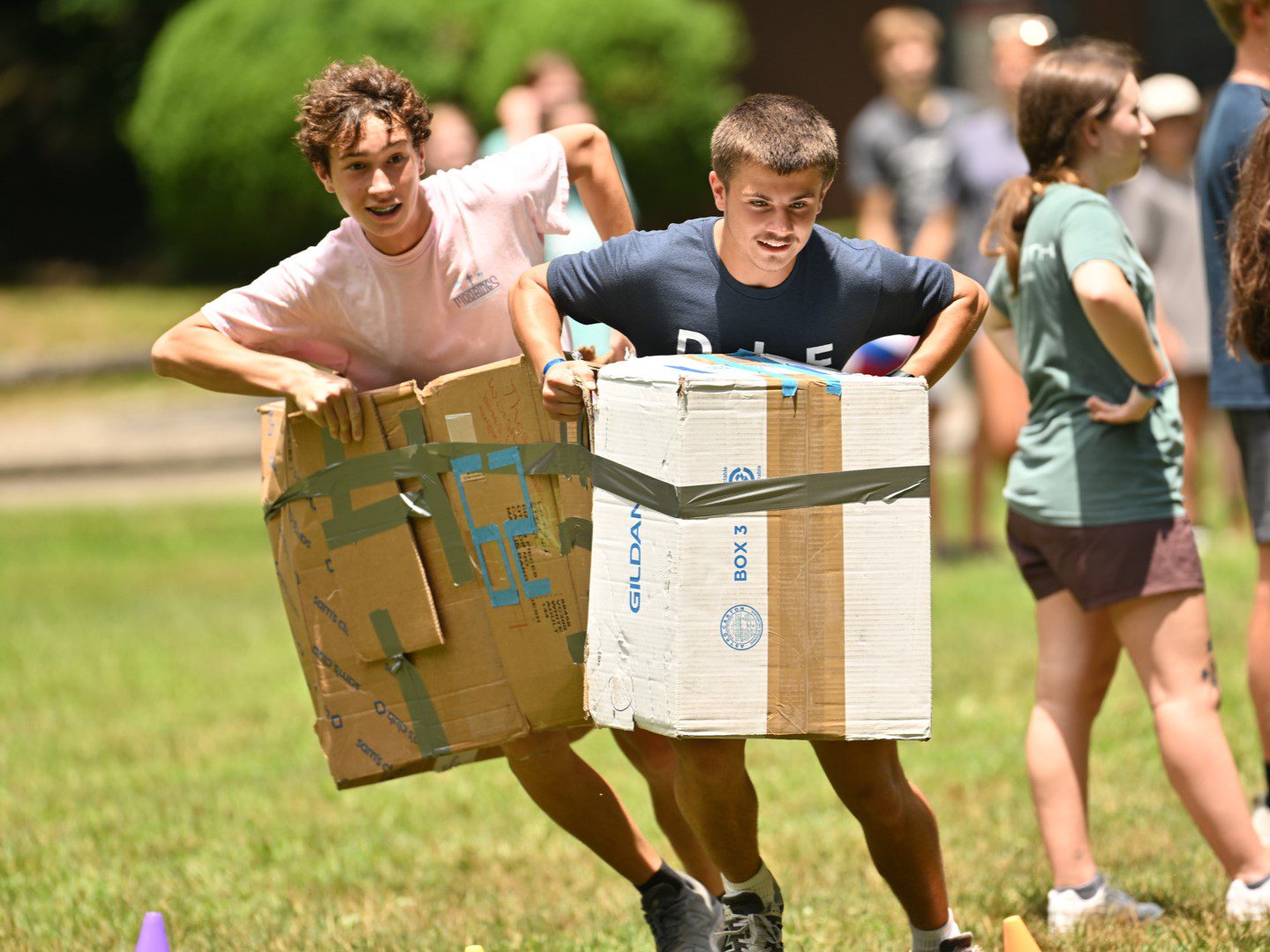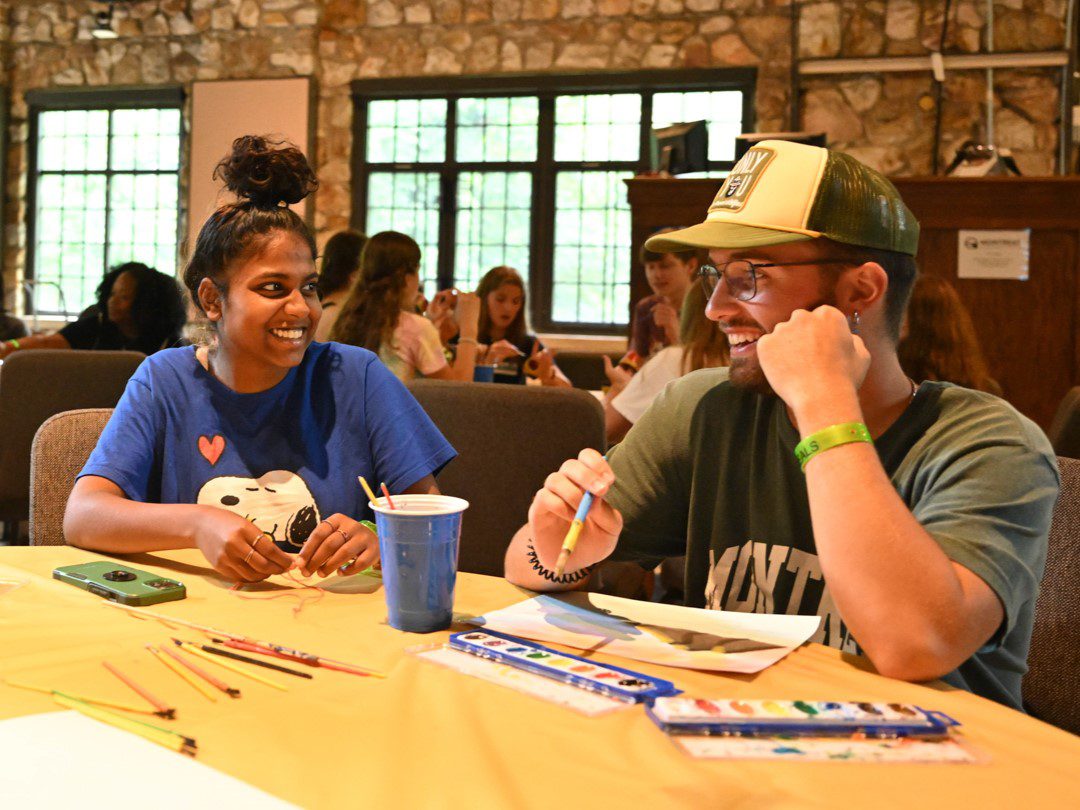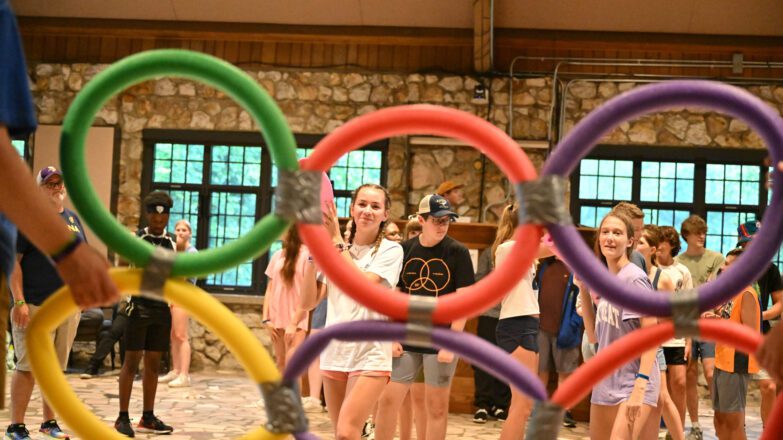When planning retreats for families or youth, it is important to include a variety of ways for them to interact, both with each other and with the message presented during your event. While this may seem like a no-brainer, we cannot overstate the importance of varied programming as a way to ensure that participants are fully present and engaged. Everyone who attends your retreat will come with different interests, learning styles, and ways that they like to communicate. For that reason, it’s important to plan an event that takes these needs into account. So, what should you include in the schedule for your next event? We specifically suggest setting aside time for worship, mission work, physical activity, artistic expression, and group discussion. Here are some of the thoughts behind each:
Physical Activity
Montreat has a long history of engaging youth through recreation events that are fun, challenging, and community focused. We are firm believers that if you can play together, you can pray together; if you can sing together, you can talk together; and that if you can dance together, you can walk through life together. Starting off your retreat with a physical activity, be it an energizer, relay race, or group game, helps participants to feel more at ease and, sometimes, can help them to focus on other activities later in the day.

Artistic Expression
Taking part in a creative project can give people a way to express feelings and emotions that words cannot. It’s another form of communication! In a setting where you are likely discussing big ideas or difficult topics, art can help participants process what they have heard and respond. It also gives retreat attendees a way to participate regardless of physical ability or skill. Just make sure you select a project that isn’t too intimidating so that it is accessible for all participants.
Worship
Hopefully, it goes without saying that worship should play a role in your church retreat. What makes its inclusion exciting, however, is the opportunity to incorporate creative forms of worship that differ from your typical Sunday morning services. Encourage participants to lead your group in song, read scripture, or offer prayers. You never know how that might empower them to become more involved with your congregation once you return home! Plus, it can lead to an impactful worship experience that participants will remember for years to come.

Group Discussion
If worship is what introduces your participants to new ideas, group discussion is what allows them to digest it. Talking about what you’ve heard and sharing how it relates to you personally allows you to further define your faith and strengthens your relationship with other attendees. Encourage discussions that are both honest and respectful by coming prepared with questions and responses that can guide the conversation. You might even consider recruiting or training other individuals from your congregation who can act as small group leaders and mentors for youth in your group. These conversations allow youth to feel seen and heard, making group discussion a vital part of any event.
Mission Work
It is always important to remember to give back. If you have the opportunity, try to include a mission project as part of your event that you can complete as a group. Not only does this allow your group to make a difference in the wider community, it also reinforces the values you’re discussing throughout the retreat. Whether it’s assembling hygiene kits, helping with a local garden, writing letters to homebound members, or collecting supplies for a food pantry, service projects can be powerful bonding experiences. They offer a chance to put faith into action and remind participants that even small efforts can have a meaningful impact.
When you create space for movement, creativity, reflection, discussion, and service, you help craft a retreat that is engaging, inclusive, and spiritually enriching. Thoughtfully planned programming ensures that each participant can find a meaningful way to connect with each other and with God. As you look ahead to your next retreat, consider how you might weave these elements together to foster a sense of community that lasts far beyond your time together. Visit our retreat planning webpage to see how you can implement these strategies and more during your next event.
This article was originally published in the October edition of Montreat Conference Center’s email newsletter Embodying Hospitality which highlights information related to retreats and guest groups at Montreat. Sign up to receive Embodying Hospitality directly in your inbox by clicking here.

